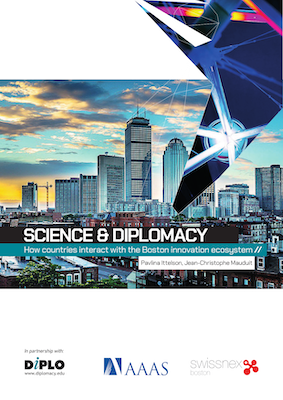
Author: Lakmini Premadasa
Science Diplomacy opportunities to address infectious disease
Note: This article is a part of the publication ‘Science diplomacy capacity development: Reflections on Diplo’s 2021 course and the road ahead’
In the field of infectious diseases research, Science Diplomacy is applied widely and plays a pivotal role globally on a macroscale, as well as in the day-to-day work of individual scientists. The COVID-19 pandemic has proven that infectious diseases have no geo-political borders and has been a wake-up call to scientists, policymakers and the public that Science Diplomacy should be utilized efficiently to fight global health crises. It was also a reminder that one nation or community cannot operate in isolation to tackle a highly contagious and deadly infectious disease, and that we are all only safe if we work together. This collaborative effort should include infectious disease researchers, healthcare professionals, government law makers, global organizations and more importantly, the general public, working together towards a common goal of achieving successful surveillance of disease spread, along with robust treatment and prevention mechanisms to mitigate disease.
In the case of the Ebola, Zika and COVID-19 outbreaks, Science Diplomacy was deployed to draw resources and experts from around the world to study the disease, help tackle the spread of the disease, and test and invent vaccines and treatment modalities. This global coordination is critical during pandemics. Although the measures that were taken were eventually significant to slow the spread of the disease, vaccinate people and lower the death toll, the COVID-19 pandemic has shown many signs of failure of coordination between science and diplomacy, and a lack of proper leadership at the global level to execute it. The slow transmission of information between science and governments caused failures in slowing the spread of the virus in its early stages. The ability to communicate effectively across various disciplines and stakeholders is a necessary tool for successful deployment of Science Diplomacy.
Policymakers often become aware of an issue and turn to scientists for solutions only after the problem emerges and is at a critical stage, rather than taking actions to prevent it by listening to scientific warnings. For example, when COVID-19 emerged, policymakers needed a solution quickly. Scientists have been warning of such outbreaks for decades but the lack of awareness of policymakers in scientific research, miscommunication and also in some cases deliberately ignoring warnings cost a lot of lives globally.
Therefore, in the future of Science Diplomacy, the successful involvement of knowledge brokers and ‘boundary spanners’ to fill these gaps will greatly improve global Science Diplomacy in the infectious disease field. Moreover, it is imperative that academic institutions prepare researchers not only for academic careers but also expose them to experiences that prepare them to work across the intersection of science and policymaking. As an academic scientist, I have experienced the lack of knowledge in the communication between science and policymaking. I believe that changing the academic curricula to address miscommunication and knowledge gaps between scientists and policymakers is critical. In my future career as an infectious disease scientist, I plan to conduct projects through which science can contribute to policy, and to collaborate with legislators and policymakers across disciplines to produce policy relevant science.








